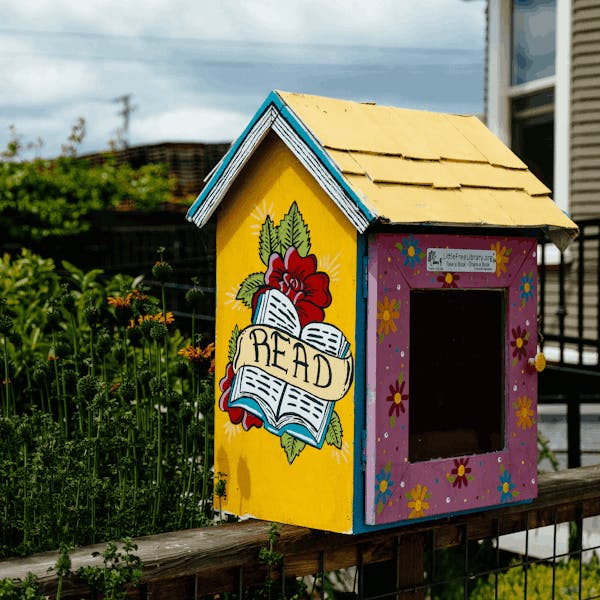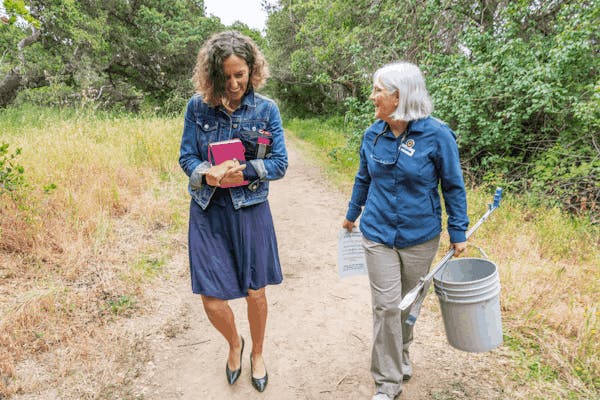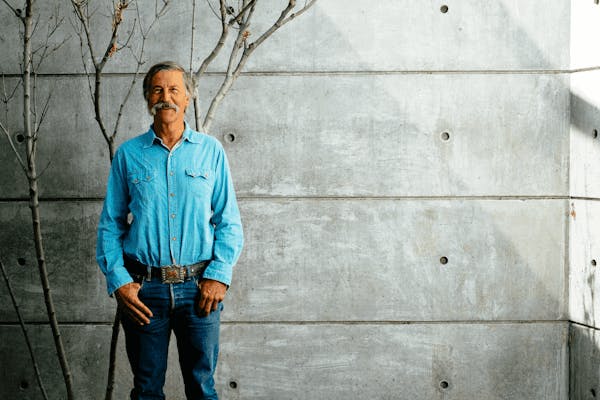Act Now
This giving season presents a unique opportunity to strengthen the place we call home. And this year, there's added reason to act.
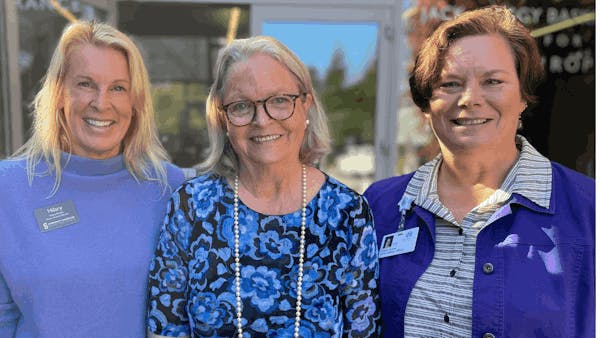
Navigating Life Transitions
Shary Farr has left explicit instructions for her husband Sam about which convalescent hospital she would like to be placed in should the need arise and she’s unable to make a decision. “I’ve been to most of them on the Monterey Peninsula,” she explained, “and in my advanced health care directive I said, ‘You can send me to this one or this one, but if you send me to that one, I will come back and haunt you!’”
Shary—with humor, warmth, kindness, and expertise—told this story during a recent workshop at the Community Foundation on “Navigating Life Transitions.” The event was co-hosted by Hospice of Santa Cruz County and Shary knew that laughter was an important way to help guide participants into a conversation about planning for their deaths with thought and care.
Making Clear Choices
Shary is clear that her life’s work is to help people decrease their fear of death by supporting them to make death a planned loving event, not a chaotic crisis. She says, “One day we are all going to go from being our strong, beautiful selves, from being wives, from being sisters, from being aunts to becoming the patient. And one day we are going to become the deceased. My question to all of us, myself included, is how prepared are we?”
Through her work at Partners for Transitions, Shary helps translate her clients’ deepest fears into their clearest choices. She says, “We may have done an airtight estate plan, but it will be the personal and the practical details that may determine how best we are remembered and how much we are loved.”
A Gentle Death
For many years, Shary admitted that she kept her important papers and documents all over the house. “I knew exactly where everything was—under the bed, in the hall closet, and around the garage. But the question I had to ask myself is, would Sam or my daughter know where to find them?”
That’s why Shary started what she calls the “All Together Notebook,” a central place to keep all the information, papers, and documents for end-of-life plans. Shary gave an overview of all the tasks people can complete well before they become terminally ill or die that will help ease the number of arrangements and details needed to be made by caregivers and family. She shared how some of the “smaller” details like having a contact list, sharing passwords, and making mortuary arrangements can be incredibly helpful in addition to having an estate plan or will.
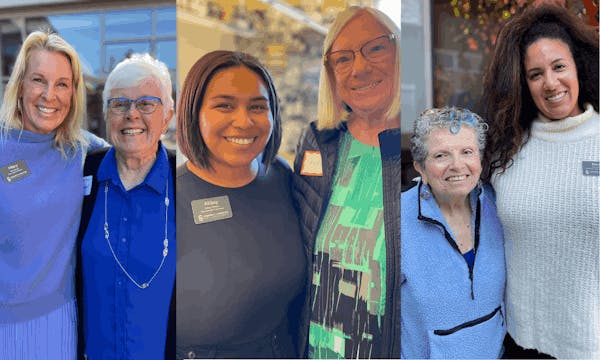
Centering Love
Most importantly, Shary emphasized that we should center love in our end-of-life plans. She said, “Estate plans may be legal documents that speak to the distribution of our assets, but they can have emotional consequences and those consequences can last a lifetime or even generations. Please do not go see your estate planning attorney when you are angry or upset!”
One of Shary’s favorite parts of end-of-life planning is writing love letters to family members, friends, and other people in our lives that matter. Beyond saying “I love you,” Shary urged that we tell people what they’ve taught us. “What we’ve learned from them. What we wish for their future. What role they’ve played in our lives.”
Shary reminded us that we be generous with our love and mindful of our anger. “If there's somebody that you're at odds with, do not write a letter to become right. Say to them, ‘I wish you well.’”
Partners in Planning
In addition to Shary’s valuable guidance at the workshop, Valerie Hayes, a community volunteer with Hospice, and Hilary Bryant, Director of Donor Services at the Community Foundation, both spoke about how Hospice and the Foundation can be partners in end-of-life planning.
Valerie introduced the Advanced Health Care Directive, a legal document in which a person specifies what actions should be taken for their health if they are no longer able to make decisions for themselves because of illness.
Hilary talked about the joyful work of planning for future giving through the Foundation’s Memorandum of Charitable Intent (MOCI), a simple document the Community Foundation uses to help you create and direct gifts from your estate—whether through your will, living trust, or beneficiary designation.
Guided by Courage
Shary encouraged workshop participants to connect with Hospice and the Community Foundation in the courageous and loving work of end-of-life planning. “I happen to know that they are staffed by angels.”
In the end, Shary encouraged participants to take control of their end-of-life plans and, rather than be consumed with fear, to be guided with love. And humor, always humor—as illustrated by one of her instructions to Sam, related to us with a wink: “I told him I wanted my ashes scattered at Nordstrom's.”
*Header photo: Hilary Bryant, Donor Services Director with the Community Foundation; Guest speaker Shary Farr; and Diane Syrcle, Chief Mission Officer with Hospice of Santa Cruz County.
